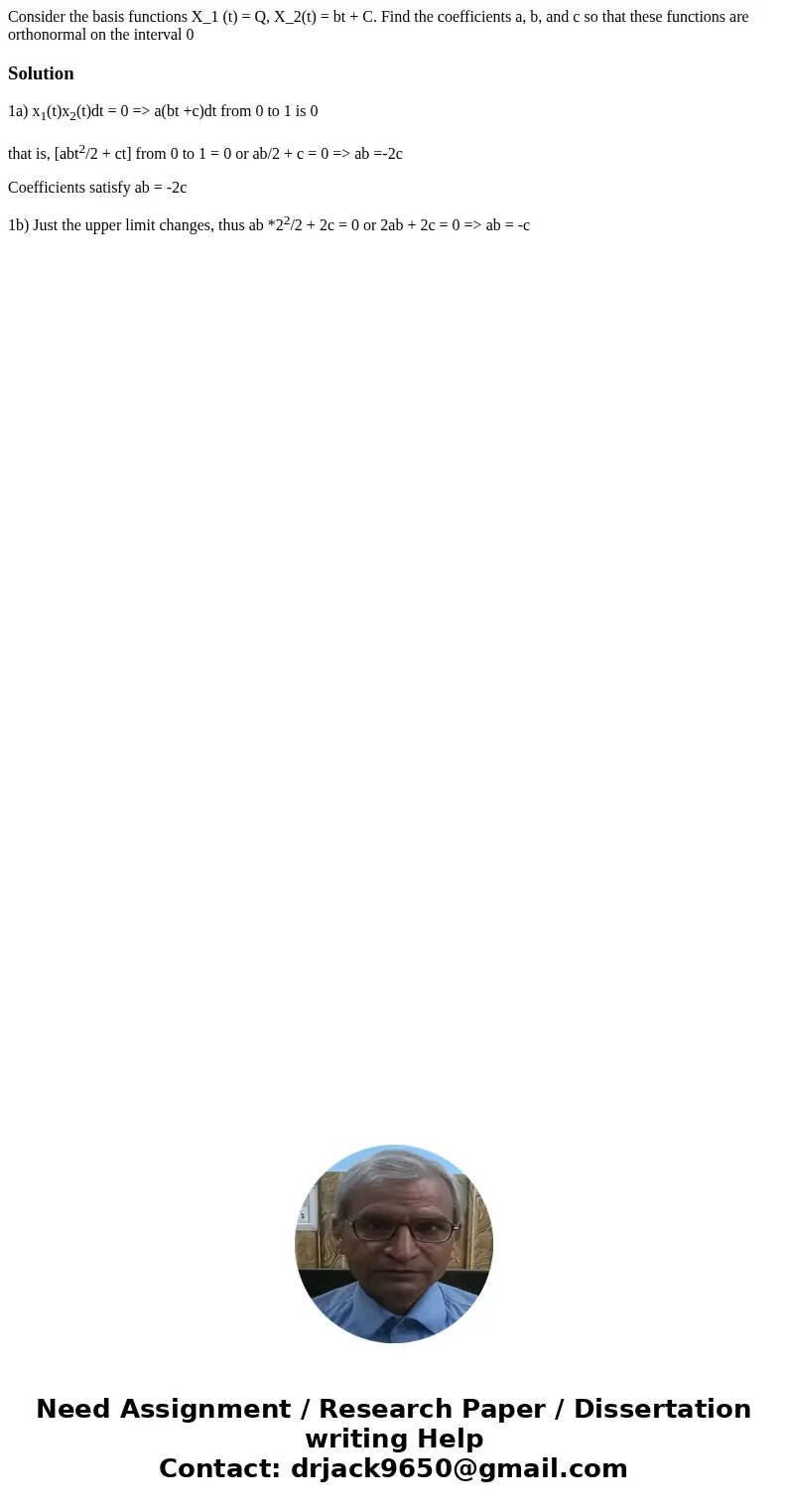Consider the basis functions X1 t Q X2t bt C Find the coe
Consider the basis functions X_1 (t) = Q, X_2(t) = bt + C. Find the coefficients a, b, and c so that these functions are orthonormal on the interval 0 
Solution
1a) x1(t)x2(t)dt = 0 => a(bt +c)dt from 0 to 1 is 0
that is, [abt2/2 + ct] from 0 to 1 = 0 or ab/2 + c = 0 => ab =-2c
Coefficients satisfy ab = -2c
1b) Just the upper limit changes, thus ab *22/2 + 2c = 0 or 2ab + 2c = 0 => ab = -c

 Homework Sourse
Homework Sourse